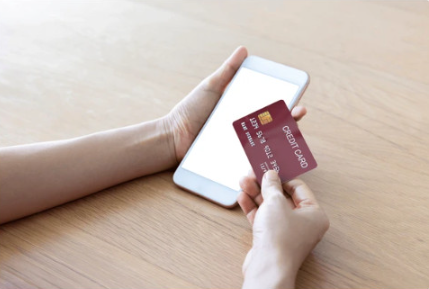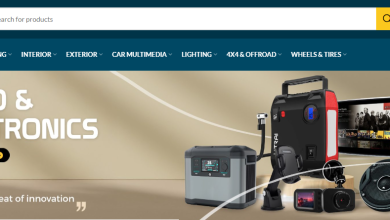Are Digital Business Cards Legal and Accepted?
Are Digital Business Cards Legal and Accepted?

Overview of Business Cards
Business cards have always been a tool for professionals to exchange contact information quickly and easily during meetings, networking events, and business transactions. These small, usually paper-based cards contain a person’s name, title, company, phone number, email, and website. From being a traditional method of professional communication, business cards have undergone immense evolution, especially with growing dependence on digital technologies.
Rise of Digital Business Cards
As the world becomes increasingly digital, traditional business practices are being challenged by emerging technologies, including the use of business cards. E-business cards, or digital business cards, are now gaining popularity because of their convenience and adaptability. With smartphones and different apps allowing digital card exchanges, professionals no longer have to carry physical cards. These virtual alternatives can be stored, shared, and updated with ease, which has led to widespread discussion on their legality and acceptance.
2. Understanding Digital Business Cards
What is a Digital Business Card?
Digital business cards are the electronic versions of traditional paper business cards. They contain the same information, such as name, title, company, phone number, and email, but are stored and shared digitally. These cards can be sent by email, text message, or even through specialized platforms and apps, like vCards or QR codes. Digital cards can be created using specific apps or websites, offering a variety of templates and designs.
Types of Digital Business Cards
Digital business cards come in a variety of formats. Some are interactive: links can be clicked on to open websites or even call and email directly. Others may be nothing more than a paper card digitized, stored on a mobile device. The following are the most common types:
QR Code Business Cards: A physical card with a scannable QR code linking to a digital version.
vCard (.vcf) Files: These are file formats that can be shared over email or text, adding the recipient directly to their contact list.
App-based Business Cards: These are created and managed through digital card apps, which can easily be shared and updated.
3. Legal Considerations
Are Digital Business Cards Legal?
Regarding legality, the digital business card does not differ from the paper ones. For a business card, its legality faces the same concern over compliance with privacy laws, anti-spam regulations, and intellectual property. There are very few jurisdictions that have an expressed law against digital business cards, so they should generally be considered legal.
However, the way in which these are used and shared can cause some legal concerns, especially with regard to how personal information is handled. For example, if a digital business card contains contact details, those details are protected by data privacy laws such as the GDPR in Europe or CCPA in California.
Business Card Laws and Regulations
There are several legal aspects to consider when it comes to using business cards, digital or otherwise:
Data Privacy: Depending on the region, business cards may be subject to data protection laws that govern how personal information is stored and shared. In the European Union, the GDPR (General Data Protection Regulation) requires companies to obtain explicit consent before collecting and processing personal data.
Intellectual Property: Designing business cards, whether digital or physical, is also an area that falls under copyright laws. If a designer designs a card for his client, it is also very important to know who the owner of the card design rights is.
Advertising Laws: Business cards may fall within the purview of advertising regulations, which include various disclosure requirements, disclaimers, or terms applicable to promotional content.
Jurisdictional Differences in Legal Acceptance
Digital business cards are widely legally accepted throughout most countries, and yet it is still important that their reception may vary, depending on the jurisdiction, since, in some of those countries with strict data protection laws, additional steps in the card’s compliance with such regulations have to be taken. Some countries need explicit consent even before using business cards with personal information, especially where the same information is passed on through digital means.
4. Adoption of Digital Business Cards
Corporate World and Digital Cards
In the corporate world, digital business cards are finding more acceptance, especially amongst the young and those that have grown up with using digital means for networking and communication. Many organizations have adopted digital business cards as part of their digital transformation efforts, especially in industries such as tech, consulting, and marketing.
Traditional businesses or conservative approaches to doing business, like law, banking, or healthcare, are still rather cautious in complete acceptance. Much of it has to do with either privacy concerns, security concerns, or just professionalism perceptions.
Customer Acceptance and Trends
Consumer acceptance of digital business cards is also growing as smartphones and apps have made sharing and receiving digital cards easier. Yet, full-scale adoption of digital business cards still faces some resistance. The older generation may still like the feel of a paper card in their hands. Therefore, digital business cards will not be universally accepted, especially in regions where digital technology adoption is slow.
Digital Business Cards vs. Traditional Paper Cards
Even with all the advantages, digital business cards are not very likely to replace paper cards completely. Physical cards offer that personal touch, which many professionals still find quite useful for face-to-face networking. However, digital cards will probably coexist with traditional ones, offering more ecological and efficient ways of sharing business contact information.
5. Privacy and Data Security Concerns
Data Privacy Regulations
The main concern when it comes to digital business cards is the violation of privacy laws. Most of the digital card apps store the data in their databases, which may create a risk if not handled properly. The United States, Canada, and other European Union members have laws such as GDPR and CCPA to protect personal data from being misused. Digital business card platforms must comply with these laws to ensure they’re handling personal information appropriately.
Security of Digital Business Card Platforms
Another concern is the security of the platforms used to create, store, and share digital business cards. Not all digital card services are created equally, and some may be open to cyberattacks, data breaches, or identity theft. Professionals must carefully vet the platforms they use to ensure they implement strong encryption and data protection practices.
Protecting Sensitive Information
With digital business cards, it is also very critical that people make sure information is kept safe and compliant. This might be not loading one’s digital card with excess personal information, using platforms that are encrypted, and ascertaining that cards given out do not have vital information that can be compromised.
6. Benefits of Digital Business Cards
Environmental Benefits
Digital business cards have an obvious environmental advantage over paper cards. Traditional business cards are printed on paper, contributing to deforestation and increasing waste. Digital cards, however, are paperless and can be stored indefinitely on a device without using any natural resources. This sustainability factor appeals to eco-conscious professionals and companies that take environmental responsibility seriously.
Cost Savings
Digital business cards may also be more cost-effective in the long run. Though designing and printing paper cards are expensive, especially for individuals who need to change these often, digital cards usually have a one-time cost with minimal expenses thereafter. Besides, digital cards save money meant for printing, shipping, and distributing physical cards.
Ease of Sharing and Updating Information
More importantly, information on digital business cards is transferred instantly through email, text, or any social media platform. They can also be easily updated, which is especially beneficial for those who often switch jobs, phone numbers, or any other contact details. On the other hand, it would be a big waste, along with an additional expense, to reprint all cards with updated information.
Integration with Digital Tools
Digital business cards will easily integrate with other digital tools such as email, social media platforms, and customer relationship management software, making it easier for the individual to manage and connect with contacts, streamline communication, and track networking activities.
7. Challenges and Drawbacks of Digital Business Cards
Potential for Misuse
While digital cards are convenient, there is also a chance that they might be misused. Digital cards are more prone to sharing without permission, which would lead to some kind of privacy violation or unwanted solicitations. Moreover, some critics expect that digital business cards will cause spamming and marketing activity without proper consent.
Not Universally Accepted
One of the main problems with digital business cards is that they are not widely accepted. Some professionals may still be resistant to accepting digital business cards, especially older professionals or those in more conservative fields. Moreover, not everyone has smartphones, nor do they feel comfortable with advanced digital technology, and in such cases, switching to a completely digital business card is out of the question.
Technical Barriers
Another challenge could be the technical barriers to access and use digital business cards. Not everyone is familiar with the technology of sharing and storing digital cards. Some may not know how to use apps, QR codes, or vCard files, especially if they are not digitally literate. Besides, the requirement of compatible devices and access to the internet may further decline the popularity of digital cards among a large section of people, especially in areas or for individuals where modern technology is beyond reach.
8. How to Make Sure Your Digital Business Card is Legally Compliant
Adding Legal Information
One of the key issues to consider when developing a digital business card is compliance with relevant legislation. Depending on the industry and jurisdiction, a digital business card may be required to carry certain legal disclaimers or regulatory information. For example, in some professions, a card may need to disclose the credentials or licensing information of the individual-for example, lawyers, doctors, or financial advisors.
In addition, the digital card should contain all the business information that may be required by law, such as the name and address of the company, and licenses. It is also very important to make sure that whatever is claimed on a digital business card is correct and does not violate any specific regulations concerning advertising or consumer protection within an industry.
Understanding Industry-Specific Requirements
For specific industries, especially regulated ones such as healthcare, finance, or law, there may be particular needs for business cards, both digital and physical. Such sectors usually expect their professionals to be bound by very strict rules in terms of what information is shared, how it should be shared, and even if there are any legal requirements to give certain disclosures.
For example, a healthcare provider may need to include their professional qualifications or registration details on their digital card to comply with medical ethics and regulations. Similarly, a financial advisor may be required to include their firm’s registration number and any certifications they hold.
Best Practices for Digital Card Design
When designing a digital business card, it’s important to follow best practices to avoid legal issues. Some of these best practices include:
Transparency: Ensure that the card clearly identifies the individual and their affiliation with the company. Avoid using ambiguous titles or false claims.
Accessibility: Make sure that the card is easy to read and accessible to a wide audience, ensuring that all essential information is available without any technical barriers.
Privacy: Be considerate of the personal information that is being shared. Avoid including superfluous personal details, and make sure the receiver is in agreement with the exchange of information before sending a card.
Usage of Secure Platform: Avail the services of authentic digital business card platforms that follow related data privacy and security regulations, and ensure your personal and professional information is safeguarded.
9. Future of Digital Business Cards
Emerging Trends in Digital Business Cards
As digital technology will continue to get advanced, so will digital business cards. Some of the emerging trends include:
Smart Technology Integration: Most of the digital business card platforms are integrating with smart technologies like NFC or augmented reality, making sharing not only easy but also engaging. For example, with the use of NFC-enabled business cards, users can tap their card on a smartphone and instantly share their contact details.
Interactive and multimedia features: Digital business cards increasingly include interactive elements such as video introductions, links to social media profiles, and even portfolios or case studies. This allows users to create a more dynamic representation of themselves or their business compared to traditional paper cards.
AI-Powered Networking: Artificial intelligence is also finding its way into digital business cards. For instance, some of the platforms use AI in scanning and interpreting contact details on physical business cards to automatically update digital profiles. This feature could further streamline the exchange of contact information and make networking even more efficient.
Increased Adoption and Innovation
The rate of adoption will likely continue to rise as more and more businesses and individuals become comfortable with the idea of digital transformation. Digital business cards are far more cost-effective, more ‘green,’ and accessible than their paper counterparts. We can expect continued innovation in the space, with more advanced features and integrations emerging, ultimately making digital business cards the standard.
With more professionals and organizations embracing digital solutions, digital business cards are likely to gain more acceptance in corporate cultures, even for those industries that have been traditionally resistant to the adoption of new technologies.
10. Conclusion
Digital business cards have definitely carved their niche in the modern professional world, offering a convenient, sustainable, and cost-effective way to exchange contact information. They are, for the most part, legal and widely accepted in many industries, but it is essential to be mindful of the legal requirements and privacy concerns that come with sharing personal data digitally.
The key to successful adoption of digital business cards is understanding their legal implications, ensuring compliance with data privacy laws, and designing them in a way that aligns with industry-specific guidelines. Moreover, the resolution of challenges like security, technical barriers, and acceptance will help pave the way for broader usage of digital cards in professional settings.
We expect a bright future for business cards as digital technologies forge onward and beyond. Smart features, along with integrations and novelties, will indeed make the use of these cards more and more part of one’s routine, changing, slowly but surely, the aspects of networking and information exchanges in the digital era. Ultimately, while digital business cards probably do not take the place entirely of paper ones, in the final analysis, modern and flexible alternatives fit to perfect nowadays may be expected.









